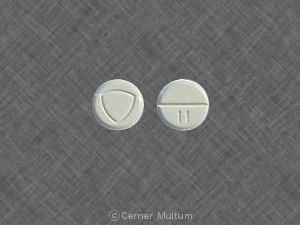Biperiden Interactions
There are 335 drugs known to interact with biperiden, along with 10 disease interactions, and 2 alcohol/food interactions. Of the total drug interactions, 8 are major, 308 are moderate, and 19 are minor.
- View all 335 medications that may interact with biperiden
- View biperiden alcohol/food interactions (2)
- View biperiden disease interactions (10)
Most frequently checked interactions
View interaction reports for biperiden and the medicines listed below.
- Acetylsalicylic Acid (aspirin)
- Activated Charcoal (charcoal)
- Adrenalin (epinephrine)
- Anti-D (RHO) Immunoglobulin (rho (d) immune globulin)
- B Complex 100 (multivitamin)
- Dextrose (glucose)
- Digox (digoxin)
- Glycerol (glycerin)
- Heparin Sodium (heparin)
- Hyosyne (hyoscyamine)
- Inderal (propranolol)
- L-Arginine (arginine)
- L-Carnitine (levocarnitine)
- L-Cysteine (cysteine)
- Lithium Carbonate ER (lithium)
- Metoprolol Tartrate (metoprolol)
- Paracetamol (acetaminophen)
- Penicillin G Procaine (procaine penicillin)
- Phenytoin Sodium (phenytoin)
- Risperdal (risperidone)
- Sinemet (carbidopa / levodopa)
- Valproate Sodium (valproic acid)
- Vitamin B Complex 100 (multivitamin)
- Vitamin B1 (thiamine)
- Vitamin B12 (cyanocobalamin)
- Vitamin B6 (pyridoxine)
- Vitamin C (ascorbic acid)
- Vitamin D3 (cholecalciferol)
- Vitamin K (phytonadione)
- Vitamin K2 (menaquinone)
Biperiden alcohol/food interactions
There are 2 alcohol/food interactions with biperiden.
Biperiden disease interactions
There are 10 disease interactions with biperiden which include:
- autonomic neuropathy
- GI obstruction
- glaucoma
- obstructive uropathy
- tardive dyskinesia
- infectious diarrhea
- cardiac disease
- liver disease
- hypertension
- hyperthyroidism
More about biperiden
- Compare alternatives
- Reviews (1)
- Side effects
- Dosage information
- During pregnancy
- Drug class: anticholinergic antiparkinson agents
Related treatment guides
Drug Interaction Classification
| Highly clinically significant. Avoid combinations; the risk of the interaction outweighs the benefit. | |
| Moderately clinically significant. Usually avoid combinations; use it only under special circumstances. | |
| Minimally clinically significant. Minimize risk; assess risk and consider an alternative drug, take steps to circumvent the interaction risk and/or institute a monitoring plan. | |
| No interaction information available. |
See also:
Further information
Always consult your healthcare provider to ensure the information displayed on this page applies to your personal circumstances.


